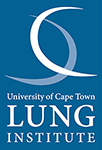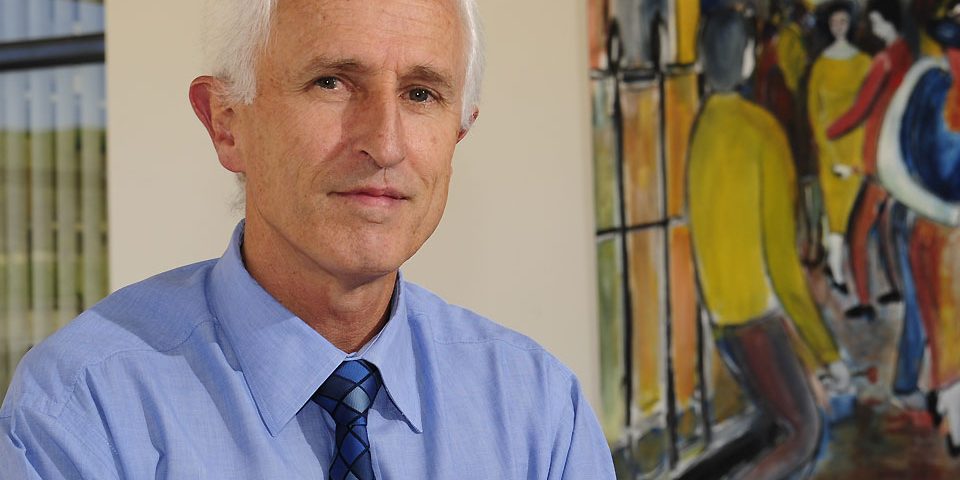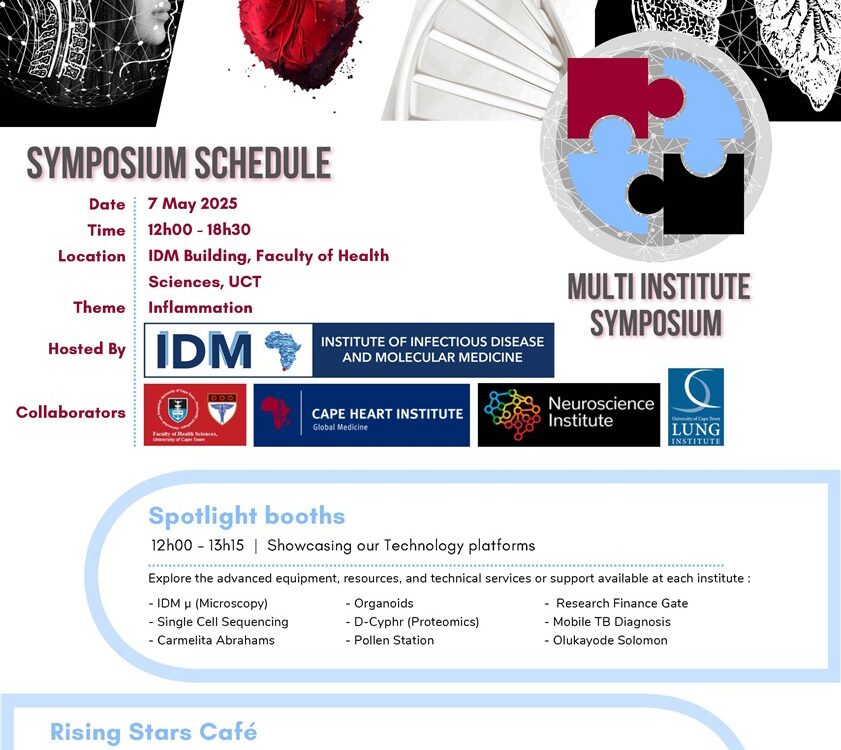
10% of adults currently suffering from asthma are unable to control it
1st May 2014
Return of the ‘White Plague’: Fears over the rise of ‘incurable’ TB
28th May 2014Eleven UCT researchers have been selected as finalists for the prestigious NSTF-BHP Billiton Awards for 2013/14.
The national awards celebrate outstanding contributions to Science, Engineering, Technology and Innovation (SETI) in South Africa. With 11 out of a total of 56 finalists, this is an excellent showing for our academic community, says Prof Danie Visser, Deputy Vice-Chancellor for Research.
Visser believes the nominations reflect the strength and depth of UCT’s research, as well as the exceptional commitment of our researchers.
“It is very pleasing for our researchers to be recognized for the significant work they do in pushing forward the frontiers of their fields. Their research has a substantial impact on a wide range of local and global issues, from solving some of Africa’s most intractable health problems to developing technologies that contribute to our economy and put South Africa on the map internationally.
“It is also notable how many of our top researchers devote their energies to growing the careers of younger researchers, blazing a trail while ensuring that others can continue for generations to come.”
The categories and the UCT finalists are:
To an individual for an outstanding contribution to science, engineering and technology (SET) over a lifetime
Eric Bateman: Eric Bateman is Emeritus Professor in the Department of Medicine and director and founder of the UCT Lung Institute. An A-rated researcher, he has been a leader in research on asthma worldwide, as well as in improving methods of delivering primary care in low-middle-income countries. He has contributed to the understanding and treatment of asthma and related diseases in South Africa and globally, and in developing methods for assisting and empowering health workers, predominantly nurses, in primary care facilities to deliver quality care for common chronic and infectious diseases.
Jean Cleymans: Jean Cleymans is Emeritus Professor of Physics and an A-rated researcher. For the past 30 years Cleymans has dedicated his research to a systematic and thorough analysis of particle production in high energy collisions of particles, including those obtained at the famous Large Hadron Collider located in Geneva, Switzerland. His results have led to unique insights in the description of particle production, ranging from low to the highest beam energies: in particular, the property of chemical equilibrium is now well established at almost all beam energies ‘“ thanks to detailed analyses performed by Prof Cleymans and collaborators.
Valerie Mizrahi: Valerie Mizrahi is Professorial Director of the Institute of Infectious Disease and Molecular Medicine at UCT. She also directs the MRC/NHLS/UCT Molecular Mycobacteriology Research Unit, leads the UCT node of the DST/NRF Centre of Excellence for Biomedical TB Research, and is a Senior International Research Scholar of the Howard Hughes Medical Institute (USA). Mizrahi is A-rated and internationally recognised for the significant contributions she has made in understanding the biology of Mycobacterium tuberculosis, the causative agent of tuberculosis (TB). In 2013, she received the prestigious Christophe Mérieux Prize from the Mérieux Foundation and Institut de France for her contributions to TB research, training and leadership in South Africa.
TW Kambule NRF-NSTF Awards: To an individual for an outstanding contribution to SET through research and its outputs over the last 5-10 years
Keertan Dheda: Keertan Dheda is Professor and Head of the Division of Pulmonology, Department of Medicine. He has made seminal contributions to understanding the pathogenesis, diagnosis, management and control of drug-resistant TB in South Africa. His contribution to this area has been internationally and nationally recognised through the 2010 International Union Against Tuberculosis and Lung Disease Scientific Award, and the South African MRC Gold Award in 2013. He recently led a team that published their findings in the Lancet, showing that placing new rapid TB diagnostic technology (Gene Xpert) in a clinic was feasible when testing is performed by a nurse. This approach has led to rapid diagnosis of drug-resistant TB, with more patients being placed on treatment.
Genevieve Langdon: Genevieve Langdon is Professor and Deputy Head of the Department of Mechanical Engineering. Langdon has, over the past 10 years, developed and evaluated blast resistant materials for use in structural and transportation applications. She seeks to make the world a safer place through improved understanding of structural response to explosion loading. Her work has focused on understanding the mechanisms involved in the response of lightweight materials (such as composites, hybrids, metals, foams and lattices), in order to improve their design and to inform the materials selection process.
Prof Valerie Mizrahi (see above) is also a nominee in this category.
TW Kambule NRF-NSTF Awards: To an emerging researcher for an outstanding contribution to SET through research and its outputs over a period of up to six years after award of a PhD or equivalent in research.
Paul Barendse: Paul Barendse is Associate Professor in the Department of Electrical Engineering. He made significant contributions to the design, modelling, control and diagnostics of energy conversion systems for alternate energy and industrial applications. These applications include wind energy conversion systems, motorised loads, energy storage systems, electric vehicles, solar energy systems and fuel cells, among others. Particular attention was given to the efficient operation and diagnostics of these energy conversion systems whereby advanced signal processing techniques are applied to continuously assess these systems.
Thomas Scriba: Thomas Scriba is Associate Professor and Departmental Director of Immunology, SA Tuberculosis Initiative. His research focuses on the immune response to tuberculosis, with a particular emphasis on translational research into new and improved TB vaccines. He has been co-investigator for more than 10 clinical trials of new TB vaccines and has authored 51 papers in peer-reviewed international scientific journals. Schriba has also contributed to raising research funds to a value exceeding R100 million and has supervised many postgraduate students. He is Deputy-Director of the South African TB Vaccine Initiative and serves on several international TB vaccine advisory groups.
Grant Theron: Dr Grant Theron is Senior Research Officer at the Department of Medicine. Theron has made important contributions that improve our understanding of the diagnosis of TB, which is the single biggest killer of young South African adults. His work on a new test called GeneXpert (led by Prof Keertan Dheda; see above) has been published in leading medical journals such as The Lancet, impacted global and national health policy, and frequently attracted editorial comment and prizes. He holds awards from the Wellcome Trust and the Medical Research Council, and is an inventor of a device that measures the infectiousness of TB patients. He currently supervises a postdoctoral student, three PhD students (including two clinician-scientists), and an MSc student.
To an individual or a team for an outstanding contribution to SETI through communication for outreach and creating awareness over the last 5 years
The Aqualibrium Water Engineering Competition Team comprises Kobus van Zyl, Professor at the Department of Civil Engineering and Marie Ashpole, Guidance Officer for the South African Institute for Civil Engineering. An engaging educational activity that has reached thousands of learners, the Aqualibrium water competition is used to teach learners and others the importance of water quality, quantity, conservation and protecting the environment. It also teaches how safe drinking water gets to people, what civil engineers do and how they use mathematics and physics in their work. To an individual or a team for an outstanding contribution to SET through research leading to innovation in a corporate organization or institution
Elemental is led by Arnaud Malan, Associate Professor at the Department of Mechanical Engineering. A Next Generation Computational Fluid Dynamics Software is a giant leap for technology. It uses novel mathematical models and equations in the field of computational fluid dynamics (CFD), enabling scientists to study the dynamics of fluid flow and offering accurate predictions and unprecedented insights. A sophisticated analysis technique, it offers multiple predictions with diverse applications from aircraft design to heart valves. Airbus found Elemental “scientifically innovative while outperforming competing codes by a significant margin” and Airbus Defence and Space, Europe’s top space technology company, share the sentiment. Elemental has attracted research contracts worth over R6 million from Europe and resulted in a new UCT spin-out company.
The winners will be announced at the NSTF-BHF Billiton Awards Gala Dinner on 3 July 2014.
Read more UCT: Today’s news, 21 May 2014



